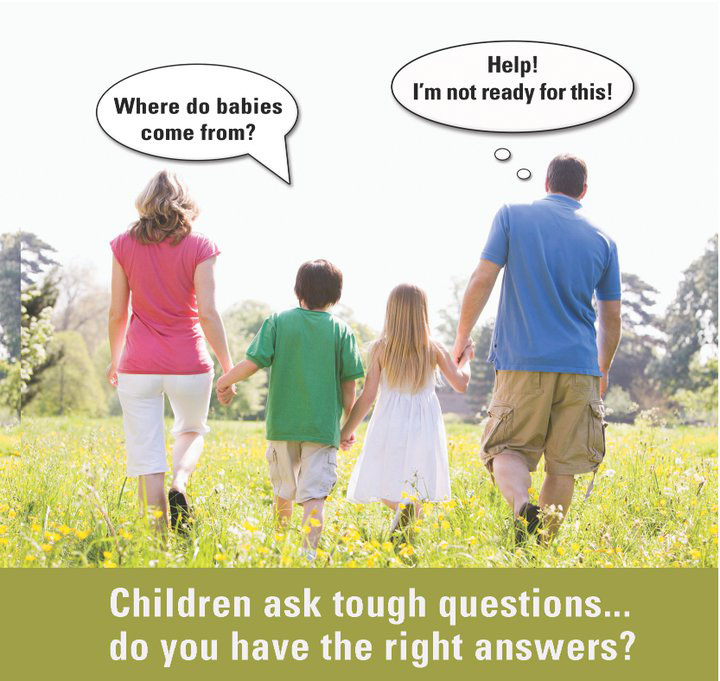
Mary Flo Ridley grew up in a household where the word “sex” was never spoken. Today she’s a popular Dallas-based speaker who advises parents on talking with their children about the very topic her parents so carefully avoided. I had the opportunity to attend a presentation by Mary Flo and asked her to share some wisdom with our readers. She graciously agreed, below is our Q&A:
EPS: How did you become a speaker on this important topic?
MFR: When my children were young, I was a volunteer with a community service organization. Having been a high school teacher prior to having my own children, this was a great opportunity to provide training to others. One year, the leaders of our group were passing out topics for the trainers to discuss and a certain dreaded assignment landed in my lap: they wanted me to teach them how to talk to their kids about sex! I sought out experts, but did not care for their recommendation of waiting till high school to focus on teaching safe sex practices. There is a time and place for these discussions, but I didn’t want “the talk” to be my children’s first impression about sexual intimacy. Quite frankly, I felt they deserved a lot better than that. I wanted to pave a new path that would capitalize on my child’s natural curiosity without overexposing her to information that wasn’t developmentally appropriate.
EPS: Why should parents be having this discussion with young children?
MFR: If you start this conversation with your child now, you will have many opportunities to expand the conversation in an age-appropriate manner as they grow and mature. It allows you to instill a solid foundation and purposeful framework for them to build on when the sensual images and messages of the media begin hitting them from all sides. By the time your kids become teenagers, they’re developmentally predisposed to be more independent in their thinking and less accepting of your counsel.
EPS: In your presentation I loved the analogy about a sponge and wanted to share a clip you posted.
EPS: What’s the first step a parent should take to teach their child about sex?
MFR: The first step in shaping your child’s sexual character is to determine what you want your children to understand about sex, along with how you want them to think and act with respect to sex. Parents need to examine their own attitudes and opinions on the subject and then develop an over arching banner message. When my husband, Dave, and I went through this process, we wanted to incorporate our core beliefs and our closely held values. We wanted the framework of our children’s conceptualization of sex to be something positive and something that placed sex within a specific context. What we came up with was “Sex is a gift from God for marriage.” This was the central message we wanted our children to know from growing up in our family. The key is that the message be YOUR message. It’s all about your family’s unique perspective.
EPS: What are your thoughts on giving body parts nicknames?
MFR: I call them the “wingy-wangy” words. With my own children I had started with simply calling the area between their legs “your privates.” During bath time I’d say, “Be sure to wash your earlobes, your knuckles and your ankles” and so on. And then I’d whisper, “And your privates,” as if it were some special secret. I soon realized when we were going to have a discussion about sex I had a limited vocabulary to work with. “You see honey, Daddy has privates and Mommy has privates and they get together and do something…private!” Using the correct medical terminology at an early age makes parents look like an authority on the subject. Normalizing the terminology early also means the words won’t be a distraction from the actual information you want them to understand when it’s time to expand the discussion. Of course in using these words you’ll need to talk about when it’s appropriate to discuss (and with who) body parts.
EPS: What if parents haven’t talked with a child who is already past their early years. Is it too late?
MFR: If you are a parent of a preteen (ages 9-12) who hasn’t asked any questions, and you haven’t engaged them in a conversation, I highly encourage you to schedule a time as soon as possible to sit down and discuss your child’s opinions, assumptions and questions about sex. Share your hopes and dreams for their sexual behavior.
EPS: What advice do you have for when a child asks questions about sex completely out of the blue? How do parents handle being caught off guard?
MFR: If our children ever asked us anything about sex, Dave and I had a policy to smile and say, “I’m so glad you asked.” We wanted them to know we were so pleased that they came to us with their question. An additional benefit of this policy was that it served as a handy stall tactic, giving us a few extra moments to formulate what we were going to say next.
EPS: Do you have any parting words of advice for parents?
MFR: Remember the main goal is to complete this sentence: What I want my children to think about sex as a result of growing up in my house is: ________________. Also, if your child has never asked any questions, you might want to try a tactic of asking them if they have ever wondered something, “Have you ever wondered how a baby is born?” or “Have you ever wondered how that baby got in there?” Just because they don’t ask questions doesn’t mean they are not curious and they may need to know it’s OK to talk about these things with you.
For more information about Mary Flo and her live program “Sooner Than You Think” visit www.maryflo.org.














In the article it mentions, that we explain to our kid that marriage is a gift from God and for marriage. What about for those who are agnostic how shold they approach it? and what about those who were not married and didn’t get married how do you explain?
Thanks so much for your questions. The message about marriage is a gift from God is what Mary Flo and her husband chose to tell their children. In the next sentence she says, “The key is that the message be YOUR message. It’s all about your family’s unique perspective.” In her book Mary Flo offers several consideration points to help with constructing a personal message, here are a couple: 1) What would you say is the purpose of sex? 2) What do you hope for your child’s sex life when they’re older? 3) How do you want your kids to remember your conversations with them about sexuality? 4) Do you hope your child saves sex for marriage? If not, when would you be comfortable with them being sexually active?…Every parent will approach this differently, it comes down to what you want your message to be. Hope that helps, thank you for reading.